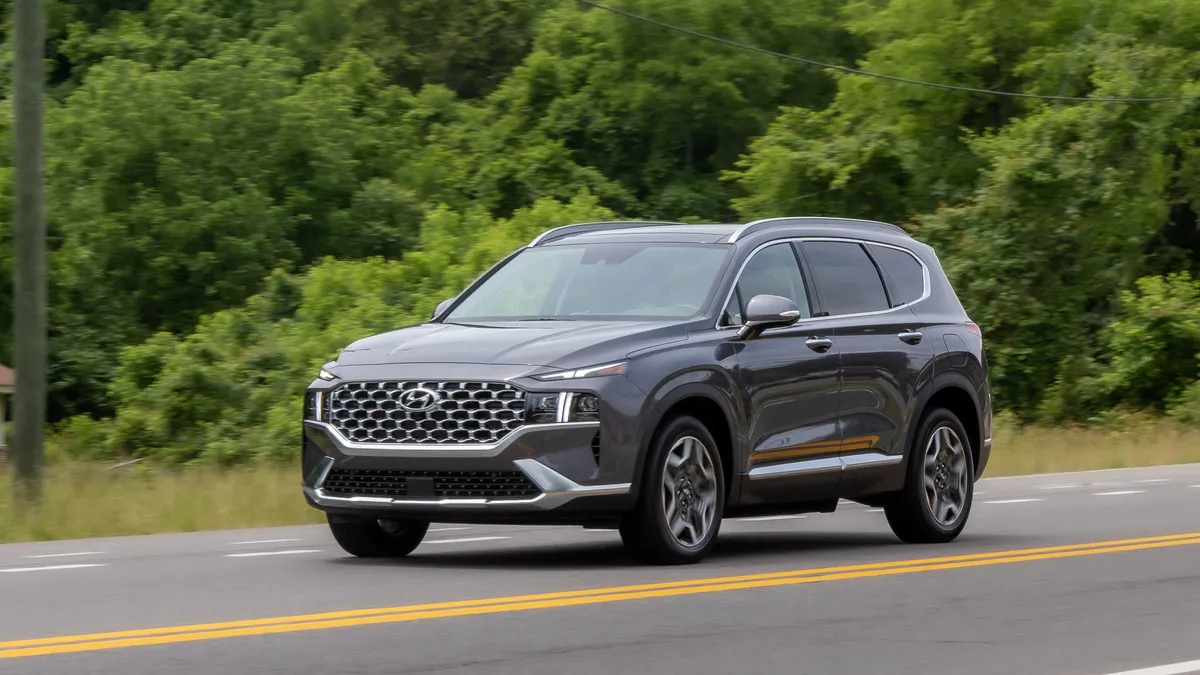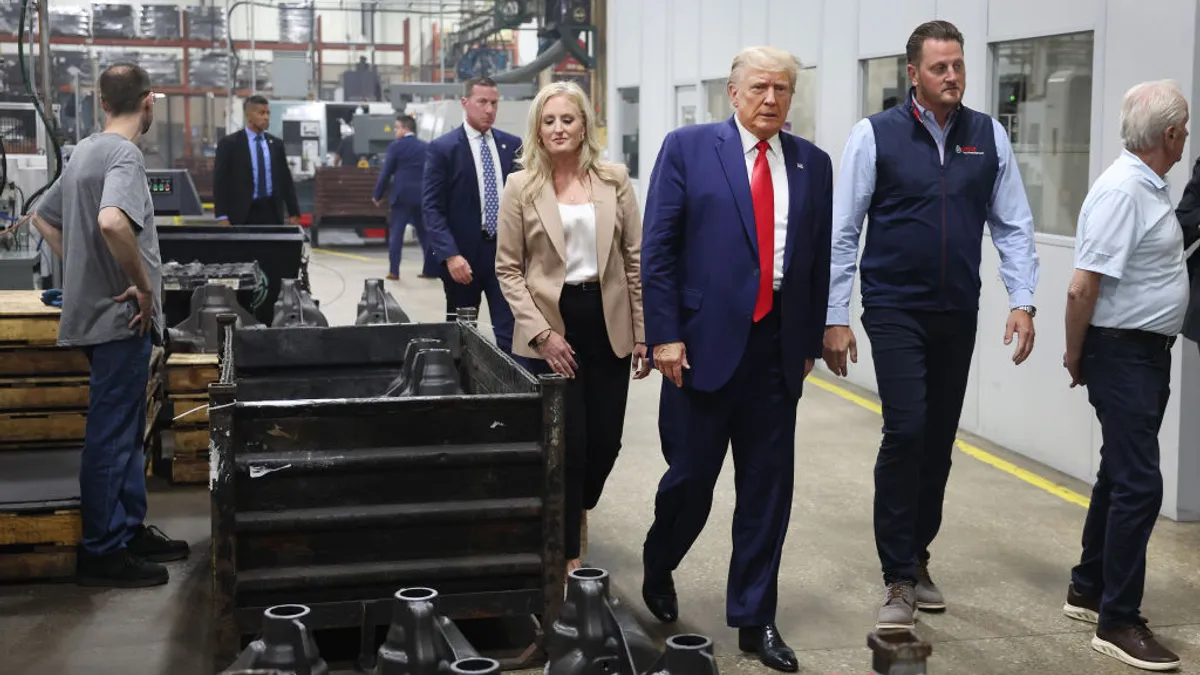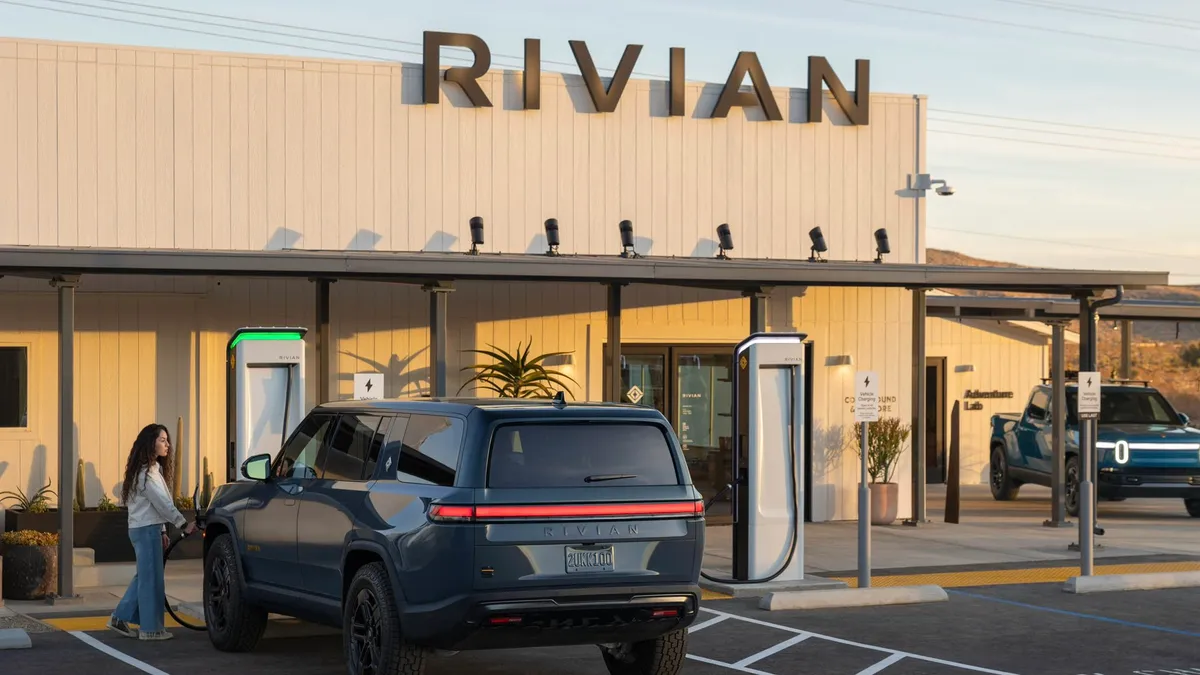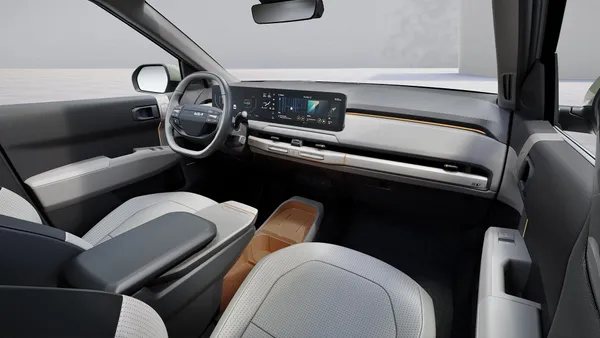Dive Brief:
- Hyundai Motor Co. reported second quarter revenue of 45 trillion won ($32.5 billion), a 6.6% year-over-year increase and the highest ever quarterly revenue in company history, the automaker announced in a press release July 25.
- The automaker sold just over 1 million vehicles globally in Q2, but sales of fully electric models declined 24.7% from the same period last year to 58,950 units, as EV demand cools across the industry.
- However, demand for hybrid models continues to grow, offsetting the decline in EV sales. Hyundai’s hybrid sales jumped 26.4% from a year ago to 122,421 units.
Dive Insight:
During the April-June period, Hyundai’s Q2 revenue broke its previous record of 40.66 trillion won set in Q1, which also included global sales of over 1 million vehicles.
Hyundai also sold nearly 98,000 hybrid models in Q1, which was a 16.6% increase from a year ago. That momentum continued in Q2, with Hyundai now posting two consecutive quarters of double-digit growth in the hybrid vehicle segment. Electrified models accounted for nearly 20% of the automaker’s total sales in Q2.
Along with its record-setting quarter, Hyundai’s Q2 operating profit also increased by 0.7% to a record-high 4.28 trillion won, while its operating profit margin reached 9.5%.
Hyundai expects that demand for hybrids will remain strong in the short term, and it plans to launch new hybrid models to keep up. The company plans to start hybrid vehicle production in Q4 at its new factory in Georgia, forgoing its previous plan to produce only EVs for the U.S. market.
Hyundai’s sister company Kia Corp. announced a similar hybrid vehicle growth strategy at its CEO Investor Day event in Seoul, South Korea, in April. Kia aims to expand its hybrid vehicle lineup from six models this year to nine models by 2028.
Despite an expanding hybrid vehicle market and slowing EV sales, Hyundai still expects that the market for zero emission fully electric vehicles will continue to grow over the long term. In March, Hyundai announced it was speeding up the timeline to start production at its $5.5 billion Georgia manufacturing campus. The plant will have the capacity to produce up to 300,000 EVs a year.
In the meantime, the automaker is strengthening its production and sales system to better respond flexibly to changes in regional markets around the globe. Hyundai also aims to further boost profitability by enhancing its product mix by adding higher margin SUVs and luxury models.












